Goan music, dance and a skit were presented at the recent World Goa Day celebrations on the island
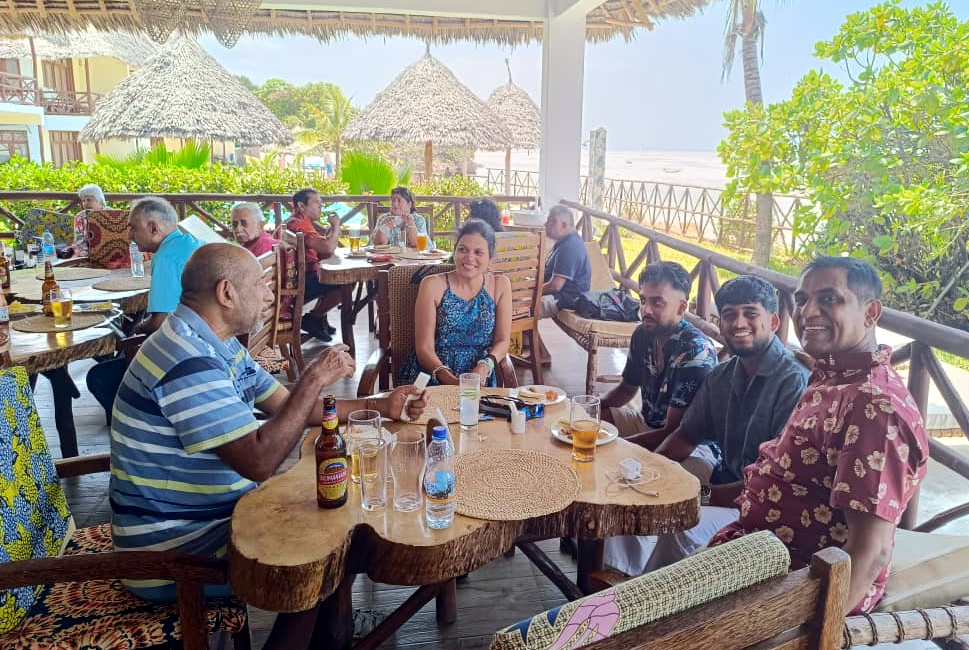
PANAJI
Goan traditions have been on the decline in Zanzibar in recent years, but efforts were made to preserve Goan culture during the World Goa Day celebrations on the island on August 25.
A small Goan community began the celebration with the Sunday Mass Service at 7am at St Joseph's Cathedral, which is in the heart of Stone Town.
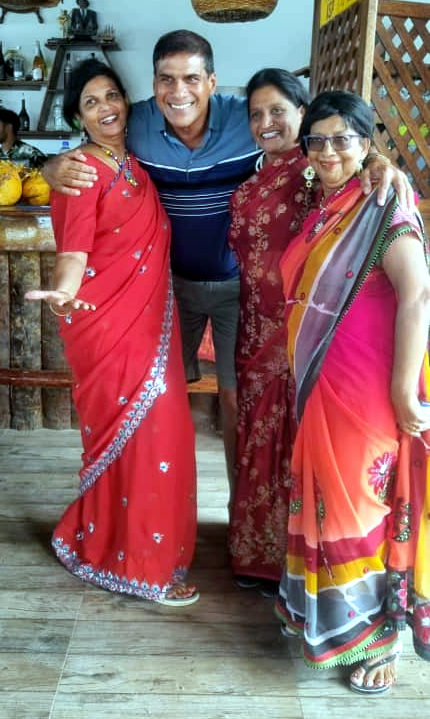 After Mass, a bus transported some of the Goans to Mahi Mahi Beach Hotel, owned and run by a Goan family on the South East Coast of Zanzibar, about 68 kms from Stone Town, while others drove in their own vehicles.
After Mass, a bus transported some of the Goans to Mahi Mahi Beach Hotel, owned and run by a Goan family on the South East Coast of Zanzibar, about 68 kms from Stone Town, while others drove in their own vehicles.
At the venue, the 86 participants (70 adults and 16 children) were served snacks and refreshments, followed by a game of Tambola and a dance to the tune of ‘Maria Pitache’ performed by 2 sisters, Neriah and Netaniah.
Most of the Goans in Zanzibar don't know Konkani as it was never spoken nor taught to them, but those who knew a few words managed to put together a short comedy skit in Konkani, which was presented by Anacleto Nunes, Joseph De Mello, Anthony and Gerald Gomes, and Cornel and Robert De Mello.
The Konkani skit was followed by a dance by the teenage sisters, Charlotte and Delicia De Mello along with their cousin, Cherlyn, to the tune of ‘Yaya Maya Ya’
The participants then enjoyed Goan cuisine prepared by the Goan family that owns the Mahi Mahi Hotel.
After lunch, the traditional Goan dance ‘Hanv Saiba Poltodi Vetam’ was performed on the beach by Lynda Fernandes, Alice Salem, Anthony Gomes and Amanda De Mello.
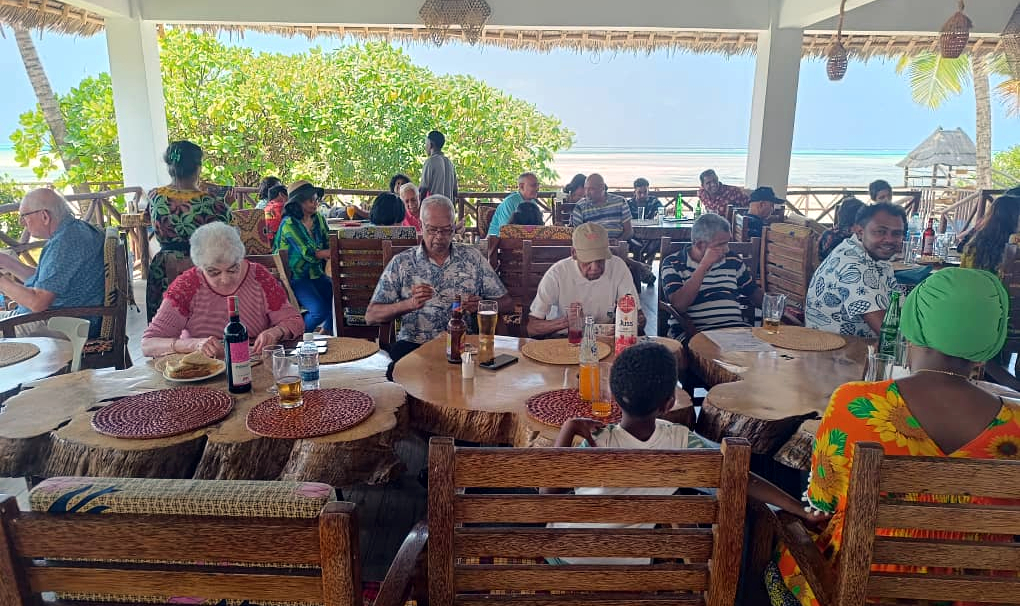
Tea along with cakes, Bebinca and Patolyo were served, while others sang Karaoke and a few danced.
“It is sad that Goan traditions and culture are slipping away in Zanzibar, we have just a handful left who do understand and speak Konkani but for now everyone speaks English and Swahili,” said Amanda de Mello, one of the organisers.
“Thanks to YouTube, we managed to watch the videos and do the dances although we didn't understand the lyrics and didn't have time to practice. But we wanted to put up a last minute surprise show for everyone to enjoy so we just dressed up and danced and indeed it was a success and everyone was so happy.”
“It has been over 40 years since we last had Konkani dances or Tiatrs. This was something that was really enjoyed by all,” Amanda added.
The Goan community in Zanzibar has been pursuing efforts to get back their Goan Institute, so that Goans can have a community centre to present and preserve Goan culture, traditions and cuisine.
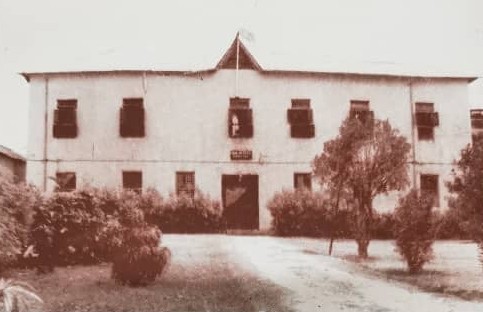
The Goan Institute at Zanzibar as seen in 1954. Photo courtesy: Herbert Fernandes
Amanda de Mello, one of the community leaders in Zanzibar, informed that the main problem that Goans are facing here in Zanzibar is that they do not have a place where they can meet to socialise.
“It is only after the Sunday morning Mass Service that we meet for small chats and then everyone leaves to go home for breakfast,” said Amanda.
“Sadly, after the Revolution, our Goan Institute was nationalised by the revolutionary government of Zanzibar and so we depend on our homes or hired halls to hold any events/functions.”
“On May 21, 2022 we had the privilege to visit the President of Zanzibar His Excellency Hussein Ali Mwinyi at the State House. The main issue we raised was to ask for our building to be returned to our Goan Community. His Excellency said he would look into it as the building needed to be refurbished and was unaware that it belonged to the Goan Community.”
“We are going to try as best we can to get the younger generation involved in Goan culture, traditions and cuisine.
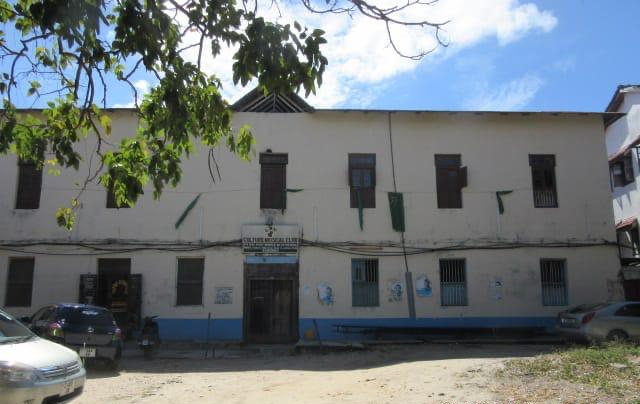
The Goan Institute was subsequently renamed as The Zanzibar Institute following the independence of Tanzania in 1961.
The need to have a Goan association in Zanzibar was felt as early as in 1904, when a group of about 44 Goans came together and formed The Goan Association on October 10, 1904, one of the oldest institutes for the Goan diaspora in East Africa.
Between 1916 and 1919, the name of the association changed from ‘The Goan Association’ to ‘Gremio Indo-Lusitano’ and then again to ‘Gremio Goano’, before it was finally changed to ‘The Goan Institute’ in 1919.
The Goan Institute was subsequently renamed as The Zanzibar Institute following the independence of Tanzania in 1961.